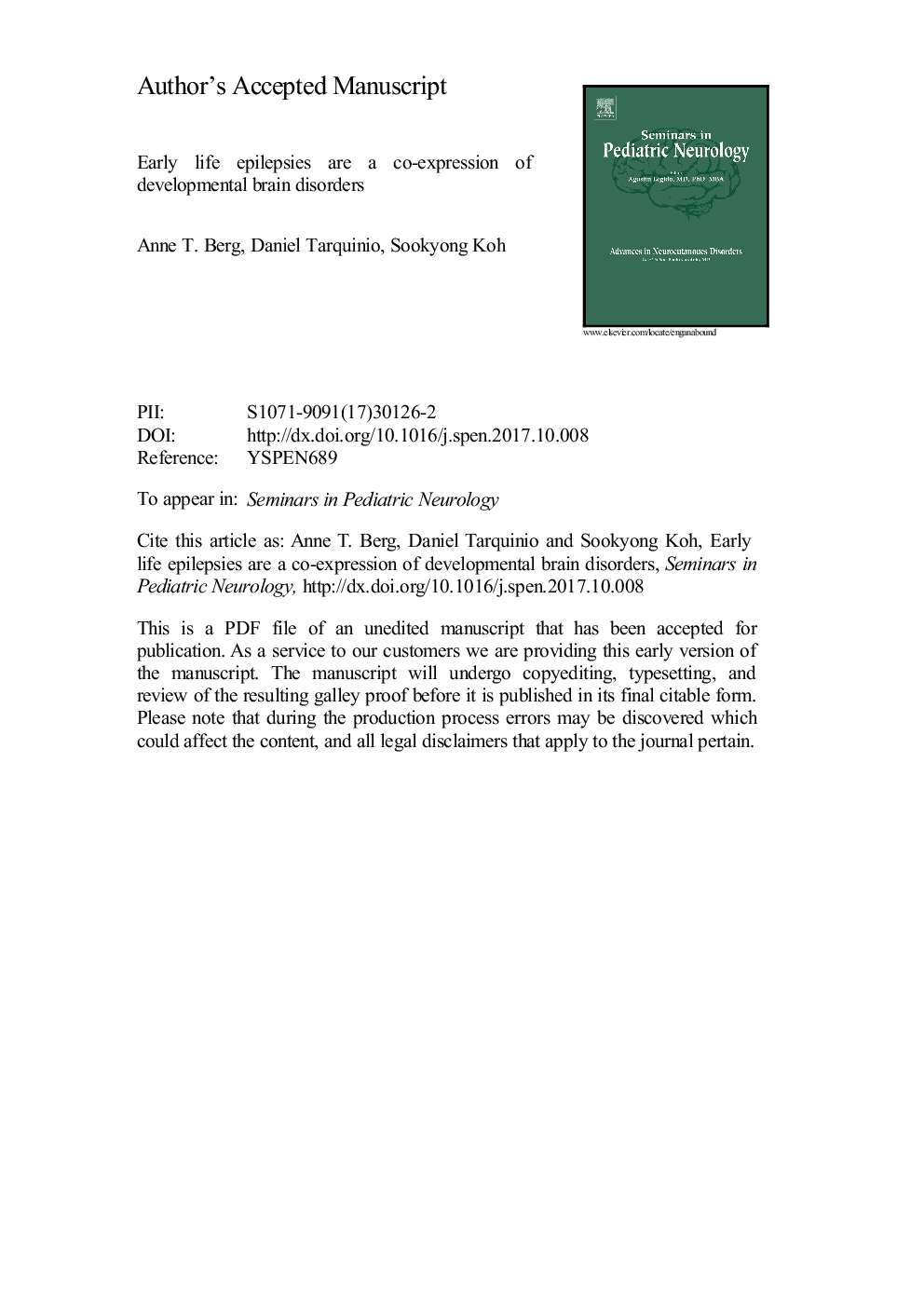ترجمه فارسی عنوان مقاله
صرع زودرس زندگی یک همدردی از اختلالات مغزی در حال رشد است
عنوان انگلیسی
Early Life Epilepsies are a Comorbidity of Developmental Brain Disorders
| کد مقاله | سال انتشار | تعداد صفحات مقاله انگلیسی |
|---|---|---|
| 122331 | 2017 | 29 صفحه PDF |
منبع

Publisher : Elsevier - Science Direct (الزویر - ساینس دایرکت)
Journal : Seminars in Pediatric Neurology, Volume 24, Issue 4, November 2017, Pages 251-263
ترجمه چکیده
صرع زودهنگام یک سری اختلالات است که اغلب همراه با طیف وسیعی از بیماری هایی که شامل اختلالات شناختی، رفتاری، عصبی عضلانی و خواب هستند؛ مسمومیت و سایر انواع اختلالات خودبخودی؛ مشکلات پردازش حسی؛ و مسائل دیگر. معمولا این بیماری ها در یک بیمار تنها با هم جمع می شوند. به جای این که شرایط جداگانه ای داشته باشند، همه، از جمله تشنج، تظاهرات و یا بیان یکسان از اختلالات مغزی توسعه است. به جای اینکه صرع را به عنوان بیماری و سایر ویژگی ها به عنوان عوارض جانبی تشخیص دهیم، نزدیک شدن به صرع زودرس زندگی به عنوان بخشی از طیف اختلالات مغزی در حال رشد، می تواند پیامدهایی برای مدل مراقبت های چندرسانه ای، راهنمایی پیشگیرانه و مشاوره والدین، و همچنین طراحی محاکمات تصادفی و هدف گیری نتایج مهم. در نهایت، چنین رویکردی می تواند درک و کمک به بهینه سازی نتایج در این مشکل برای درمان اختلالات در اوایل دوران کودکی.

